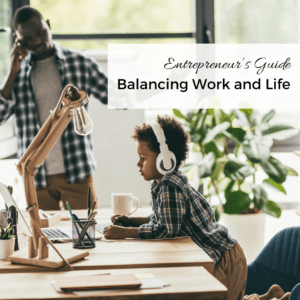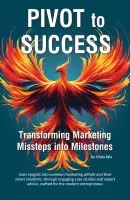Balancing work and personal life is a common struggle for many entrepreneurs. This challenge became profoundly clear to me after a pivotal moment in my corporate career: the 2015 terrorist attacks in Paris. The fear and uncertainty of that day made me realize just how out of balance my life was, as I had been prioritizing work over literally everything else. I learned some important lessons and practical strategies and insights, which I share here to hopefully help you achieve a healthier work-life balance, based on lessons learned from my journey.
The Challenges of Entrepreneurship
Entrepreneurs face unique challenges that can disrupt the balance between their professional and personal lives. These include:
- Long Working Hours: Building a business often requires more time than a standard job (something which many entrepreneurs aren’t aware of before they start), leading to long working hours.
- High Stress Levels: The pressures of managing a business can cause significant stress. You’re usually wearing all of the hats and the sole person responsible for … well, everything.
- Blurred Boundaries: The line between work and home life can become indistinct, especially when working from home.
- Fear and Pressure: The fear of missing opportunities or failing can drive entrepreneurs to overcommit and overwork.
My Journey to Finding Balance
My career in the corporate world was marked by a very visible lack of balance. While we were on vacation in 2015, the terrorist attacks in Paris were a wake-up call. Amid the chaos and fear, I realized that something terrible could have happened and the last several years of my life would have been best remembered by my friends and family as absence. This experience, however, was instrumental in teaching me the importance of balance and the steps needed to achieve it. By transitioning from a high-stress corporate role to running Vicky Wu Marketing, I learned how to prioritize both my work and personal life effectively.
The Role of Fear in Overworking
Fear often drives entrepreneurs to overwork, take on too many clients, and say yes to every opportunity, even when it’s not in their best interest. This fear can stem from:
- Fear of Failure: The anxiety of failing to make the business successful.
- Fear of Missing Out: The concern that saying no to opportunities could mean missing out on crucial growth.
- Financial Insecurity: The constant worry about financial stability can push entrepreneurs to work excessively.
Recognizing and addressing these fears is essential for achieving balance. By understanding that saying no can sometimes be more beneficial than saying yes, entrepreneurs can focus on what truly matters.
Strategies for Balancing Work and Personal Life
Here are some strategies that have proven effective for both myself and many entrepreneurs:
Set Clear Boundaries
- Designate Work Hours: Establish specific working hours and stick to them. This helps in distinguishing between work time and personal time. For example, time is pre-scheduled on my calendar for working on my business, and those slots aren’t available for client booking. Evenings and weekends also are not automatically available – although I can choose to do some work then if I desire.
- Create a Dedicated Workspace: If working from home, set up a separate workspace to physically differentiate work from home life. If you aren’t able to and find yourself unable to focus, consider a coworking space.
- Disconnect Digitally: Turn off work-related notifications after hours to ensure you’re not constantly drawn back into work mode. After office hours, calls go to voicemail. A previous job required me to be on call 24/7, and as soon as I left that job I changed DND settings on my cellphone so that no one except family could even reach me after a certain time each evening.
Prioritize Self-Care
- Regular Exercise: Incorporate physical activity into your daily routine to reduce stress and improve overall well-being. I have an app on my phone that is full of 7-minute mini workouts and it’s amazing how great taking a break to do one of those can make me feel.
- Healthy Eating: Maintain a balanced diet to keep your energy levels up and your mind sharp. Many health insurance companies provide a certain number of visits with a Registered Dietician each year, which you should take advantage of. I had been so focused on my iron (since being anemic) that I completely missed the fact I wasn’t eating nearly enough protein until my nutritionist brought that to my attention.
- Adequate Sleep: Ensure you get enough sleep to stay productive and healthy. Quality sleep is vital for both physical and mental health. This is also why you should avoid working in the bedroom – keep it a sanctuary for solid sleep.
Delegate and Outsource
- Identify Your Zone of Genius: Focus on tasks that only you can do and delegate the rest. This allows you to spend your time more efficiently and reduces stress.
- Outsource Tasks: Consider hiring experts for tasks that are outside your expertise. And even if you can do a task, it doesn’t mean you should (which is why you should focus efforts on your Zone of Genius). This not only improves the quality of work but also frees up your time. Outsourcing can include everything from administrative tasks to specialized services like marketing.
Implement Time Management Techniques
- Use Productivity Tools: Tools like ClickUp (my preference), Trello, Asana, or even a simple paper planner can help manage your time better. These tools help you stay organized and keep track of tasks.
- Batch Similar Tasks: Group similar tasks together to improve focus and efficiency. For example, dedicate specific times of the day to check emails rather than sporadically throughout. I use “time chunking” to either group tasks by client or by task type, which helps me work smarter.
- Set Priorities: Focus on high-priority tasks first to ensure critical work is completed. Use the Eisenhower Matrix to categorize tasks by urgency and importance.
Leveraging Support Systems
Building a support system is crucial for maintaining balance. This includes:
- Family and Friends: Lean on your loved ones for emotional support and practical help. They can offer a different perspective and remind you of what’s important.
- Professional Networks: Join entrepreneur groups or forums to share experiences and gain insights. Networking can provide valuable advice and moral support.
- Mentors and Coaches: Seek guidance from mentors who have successfully balanced their work and personal lives. Their experiences can provide practical advice and inspiration.
The Role of Vicky Wu Marketing in Your Journey
At Vicky Wu Marketing, we understand the importance of work-life balance and strive to help entrepreneurs achieve it through our bespoke marketing strategies. Our team of specialists can take the marketing load off your shoulders, allowing you to focus on what truly matters—both in your business and personal life. We offer services tailored to your unique needs, ensuring you don’t have to overextend yourself to succeed.
Balancing work and personal life is not a one-time effort but an ongoing process. By setting boundaries, prioritizing self-care, delegating tasks, and leveraging support systems, entrepreneurs can achieve a sustainable balance. Remember, a well-balanced life not only enhances your personal well-being but also leads to greater business success.



